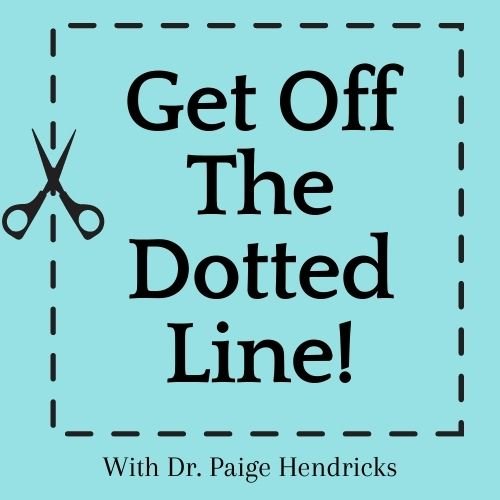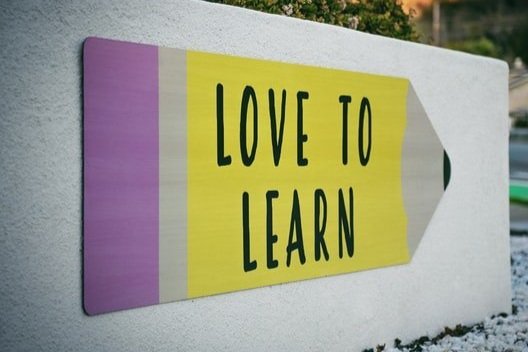Welcome to the Get Off The Dotted Line! podcast
I believe that every topic, every challenge, and every conversation within the field of education is complex and needs to be unpacked from multiple angles- outside the confines of the dotted lines.
A podcast that unpacks all things related to education and teaching. I’m here to help elementary teachers think differently about what we are teaching and why we are teaching it so our classrooms can become spaces for amazing learning potential to begin.
Your journey to explore everything educational or teachable starts right now.
〰️
Your journey to explore everything educational or teachable starts right now. 〰️
Episode 39: Book Project
Today, I interview Dr. Fran Spielhagen about our collaborative book, "Catalysts for Change: Baby Boomers Reflect on Their Legacy to Public Education." Our book explores the mindset of the baby boomer generation and their commitment to giving back through education. We discuss how the assassination of President John F. Kennedy influenced the Boomer generation's desire to make a difference. We also touch on the current challenges in education and the hope that our book will contribute to the dialogue on transforming public education.
Episode 29: Teachers, Please Consider… (Repeat)
Today, I’m going to share some insights I believe all elementary teachers should consider before assigning a common back-to-school writing assignment.
Episode 37: And We’re Back! Season 2 Opener
Welcome to Season 2 and Episode 37 where today we are going to talk about what’s new for Season 2 and where we’ve been for the past few months.
Episode 36: Social Studies Instruction in 4 Dimensions
Today, I will discuss each of the 4 Dimensions from the C3 Framework for social studies published by the NCSS. These Dimensions will help you plan for and create deeper, more connected learning experiences in social studies for your students. And I’ll include some additional tips and questions to help you get started.
Episode 35: The C3 Framework from NCSS
Today, we are going to discuss the National College, Career, and Civic Life (C3) Standards more in depth so that if you need them, these standards are useful during your social studies unit planning. The C3 Standards will also help justify taking the time every day (or almost every day) to teach social studies. Because our kids deserve it and schools nationally aren’t doing enough teaching of social studies.
Episode 34: The Social Studies Curriculum: A Teacher’s Role
Today, we are going to discuss the teacher’s role in the social studies curriculum taught in schools. All to talk around our basic question: What is social studies? See, now you understand how much deeper that simple question really is. And in this whole process of discussing social studies, you, teacher friend, matter a great deal.
Episode 33: Who Controls the Social Studies Curriculum?
You may already know the answer, or an answer to this question- Who controls the social studies curriculum? because it’s printed in the textbook you were handed to teach from or on the outside of the curriculum box sitting on your shelf as you’re listening to this podcast. But I firmly believe it’s important to go beyond the printed obvious and dig a bit deeper. Because who knows, maybe we are headed for a radical change in this sector of education in the near future (my humble prediction) and having this information will help anyone involved in education to make the best choices we can about what we teach our students, why we are teaching that topic, and what materials will best serve that purpose.
Episode 32: The 8 Types of Curriculum
I think the term “curriculum” is important to understand because it dictates how social studies is debated, taught, and ultimately learned in our classrooms..
Episode 31: What is Social Studies?
Social studies is an active, breathing, changing discipline.
Episode 30: Scaffolding and Tiered Lessons
Scaffolding and tiered lessons are two teaching strategies that can help your lessons become more creative.
Episode 29: Teachers, Please Consider…
Today, I’m going to share some insights I believe all elementary teachers should consider before assigning a common back-to-school writing assignment.
Episode 28: Orbital Studies
In this episode, I promise to define orbital studies, describe the orbital study process, and provide some recommendations for orbital studies in grades K through 5. I also promise you will have 5 tips to help implement orbital studies into your classroom.
Episode 27: Mathematics Rotations
In today’s episode I’m going to talk about math rotations. I’m purposefully not calling them centers because they are true rotations of students from one station to another during your math instruction time.
Episode 26: IES and WWC: Instruction in Mathematics
Have you ever heard of the IES? Or the WWC? There are so many different acronyms in the field of education but I wanted to bring two of them to your attention today- particularly in the area of mathematics- but these resources can be used for all subject areas.
Episode 25: Cognitively Guided Instruction Mathematics
In today’s podcast, we are going to talk about the Cognitively Guided Instruction Model or CGI. This model was discussed and unpacked in a 1996 research paper by Carpenter, Fennema, and Franke. The authors’ main purpose in this paper was to use the CGI model to help teachers interpret, transform, and reframe their informal or spontaneous knowledge about their students’ mathematical thinking. Simply, children come to school with some real, present mathematical knowledge and teachers may need to adjust their teaching to tap into this for each child before learning more math from a set curriculum. This notion is called pedagogical content knowledge (Marks, 1990) and it’s worth unpacking.
Episode 24: Creating Mathematical Pathways for All Students
In today’s podcast, we are going to talk about a series of 5 steps that when strung together, create a plan for your mathematics classroom that elevates the learning for all students, allows students to work at their own pace, and allows you, the teacher, the ability to know exactly where your students are mathematically. These topics are adapted from the Modern Classrooms Project. The Modern Classrooms Project is an organization that offers resources, professional development for teachers, and mentors to assist in implementing their teaching and learning philosophy that includes blended instruction, self-paced learning, and mastery -based grading. I highly encourage you to check out their website and resources- it’s epic!
Episode 23: What?!-You're Done Already?
In Episode 22, I tried to provide an important question to ask ourselves before we trouble-shoot why are students are finishing their work early in math class. I’m focusing on math class because that's where we are right now- still and for good reason. The question from the last episode was: Why is a student finishing their work early? In my attempt to answer that question with you, it’s important to have some tools to actually do something with this dilemma.
Episode 22: Math Early Finishers- Why?
In today’s podcast, we are going to talk about what to do when students finish early in math class. I’m focusing on math class because that's where we are right now. But maybe some of these tips will be helpful for any of the content times during the day- like during social studies or science class.
More importantly, I wanted to discuss why this is happening and how you can get to why this is happening for particular students in your classroom.
Episode 21: Math: It's All About the Story
In today’s podcast, we are going to talk about the connection between mathematics and storytelling. Right off the bat, you may be thinking, “Dr. Paige, now you want me to add a story to all of the math concepts and problems you want me to teach? That sounds like a lot of additional work.” Well, I’m here to tell you it isn’t really because many times the story appears all by itself- if you know where to look.
Episode 20: Boosting Mathematical Skills in Early Childhood
In today’s podcast, we are going to talk about how elementary teachers can boost mathematical learning in early childhood. Even though I’m going to mention “early childhood” a lot today, this discussion will be good for all levels of elementary instruction as the tips are universal for K-5. In addition, some of these tips will focus on English-Language Learners and students struggling with mathematical understanding due to a deficit in their Pre-K instruction.



















